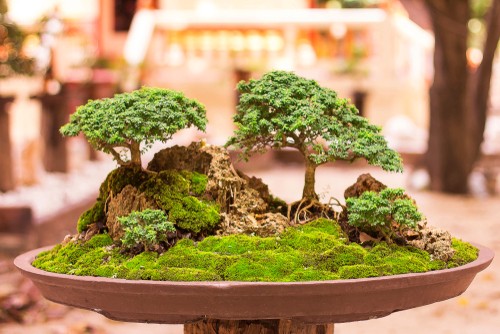
Credit: uconnladybug.wordpress.com
What is Bonsai?
Bonsai is the art of growing miniature trees in small containers. The word “Bonsai” means “planted in a container” in Japanese. This art form has been around for over a thousand years. It originated in China and was later refined in Japan. Bonsai is not just about growing small trees. It’s about creating a miniature but realistic representation of nature.
History of Bonsai
The art of Bonsai began in China. It was called “penjing” there. Penjing means “tray scenery.” The Chinese used it to create miniature landscapes. Japanese monks later brought this art to Japan. The Japanese refined the techniques and focused on individual trees. This is how Bonsai as we know it today was born.
Why Start Bonsai?
Starting a Bonsai tree is a fun and rewarding hobby. It teaches patience and care. Bonsai can also be a form of meditation. Watching your tree grow can be very relaxing. Plus, Bonsai trees make beautiful decorations for your home.
Choosing Your First Bonsai Tree
Choosing your first Bonsai tree is important. Some trees are easier to care for than others. Here are some good options for beginners:
- Ficus: This is a very forgiving tree. It can handle a lot of mistakes.
- Juniper: This tree is hardy and can thrive in many conditions.
- Chinese Elm: This tree is easy to shape and very resilient.
Tools You Will Need
You will need some basic tools to start your Bonsai journey. Here is a list of what you will need:
| Tool | Purpose |
|---|---|
| Pruning Shears | For cutting branches and roots |
| Wire Cutters | For cutting Bonsai wire |
| Bonsai Wire | For shaping the tree |
| Root Rake | For combing out roots |
| Watering Can | For watering your Bonsai |
Basic Bonsai Care
Taking care of a Bonsai tree involves several steps. Here are the basics:
- Watering: Water your Bonsai regularly. The soil should be moist but not soggy.
- Pruning: Prune your tree to maintain its shape. Remove dead or overgrown branches.
- Wiring: Use Bonsai wire to shape your tree. Be gentle to avoid damaging the branches.
- Repotting: Repot your tree every 2-3 years. This gives the roots more room to grow.
- Fertilizing: Use Bonsai fertilizer to keep your tree healthy. Follow the instructions on the package.
Common Bonsai Mistakes
Beginners often make some common mistakes. Here are a few to avoid:
- Overwatering: Too much water can rot the roots.
- Underwatering: Too little water can dry out the tree.
- Improper Pruning: Cutting too much can harm the tree.
- Using the Wrong Soil: Regular potting soil is not good for Bonsai.
- Ignoring Pests: Bugs can damage your tree if not controlled.
Advanced Bonsai Techniques
Once you get the hang of basic care, you can try advanced techniques. These include:
- Grafting: Adding branches from another tree.
- Defoliation: Removing leaves to encourage new growth.
- Deadwood: Creating the look of old, weathered wood.

Credit: www.linkedin.com
Resources for Learning More
There are many resources to help you learn more about Bonsai. Here are some good ones:
- Books: “The Complete Book of Bonsai” by Harry Tomlinson.
- Websites: Bonsai Empire and Bonsai Tonight.
- Local Clubs: Join a local Bonsai club to meet other enthusiasts.
Frequently Asked Questions
What Is Bonsai?
Bonsai is the Japanese art of growing miniature trees in containers.
How To Start Bonsai?
Choose a tree species, get a pot, and start pruning and shaping.
Which Tree Is Best For Beginners?
Ficus is a great choice for beginners due to its hardiness.
How Often To Water Bonsai?
Water when the soil feels slightly dry, usually every few days.
